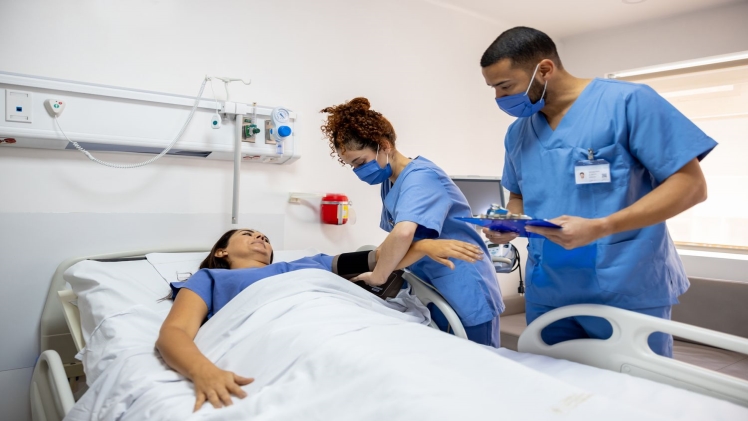High blood pressure, also known as hypertension, is a serious medical condition that can lead to a number of health problems, including heart attack, stroke, and kidney disease.
Blood pressure is measured in two numbers: systolic and diastolic. The systolic number measures the pressure in your arteries when your heart beats. The diastolic number measures the pressure in your arteries when your heart rests.
A normal blood pressure reading is less than 120/80 mmHg. Blood pressure is considered high when the systolic number is 130 or higher or the diastolic number is 80 or higher.
Blood pressure emergency
A hypertensive emergency is a very dangerous condition in which blood pressure is extremely high, often above 180/120 mmHg. This can cause damage to your organs and may be life-threatening.
If you have a hypertensive emergency, you need to seek medical attention immediately. This may mean calling 911 or going to the emergency room.
Symptoms of a hypertensive emergency
Symptoms of a hypertensive emergency may include:
- Severe headache
- Chest pain
- Shortness of breath
- Confusion
- Vision changes
- Numbness or weakness
- Seizures
When to go to the hospital for high blood pressure
If you have high blood pressure and you experience any of the symptoms listed above, you should go to the hospital immediately.
You should also go to the hospital if your blood pressure is very high, even if you do not have any symptoms. A blood pressure reading of 180/120 mmHg or higher is considered a hypertensive crisis and requires immediate medical attention.
Other reasons to go to the hospital for high blood pressure
In addition to a hypertensive emergency, there are other reasons why you may need to go to the hospital for high blood pressure. These include:
- If you have high blood pressure and you are also experiencing other medical problems, such as heart failure, kidney disease, or diabetes.
- If you have high blood pressure and you are pregnant.
- If you are taking medication for high blood pressure and your blood pressure is not controlled.
What to expect at the hospital
If you go to the hospital for high blood pressure, the doctor will likely take your blood pressure and ask you about your medical history. They may also recommend taking blood tests in London, especially if they need immediate results. Clinics in London can be fast and efficient when prioritizing critical patients for testing and delivering results.
If you have a hypertensive emergency, the doctor will likely give you medication to lower your blood pressure quickly. They may also monitor you in the hospital to make sure that your blood pressure is controlled.
If you have high blood pressure and you are not in a hypertensive emergency, the doctor may work with you to develop a treatment plan that may include medication, lifestyle changes, or both.
How to prevent high blood pressure
There are a number of things you can do to prevent high blood pressure, including:
- Eating a healthy diet
- Maintaining a healthy weight
- Exercising regularly
- Limiting your salt intake
- Avoiding smoking
- Reducing alcohol consumption
If you have high blood pressure, it is important to follow your doctor’s treatment plan carefully. This may help to lower your blood pressure and reduce your risk of developing serious health problems.
Conclusion
High blood pressure is a serious medical condition, but it is treatable. If you have high blood pressure, it is important to follow your doctor’s treatment plan carefully and to go to the hospital if you experience any of the symptoms listed above.

